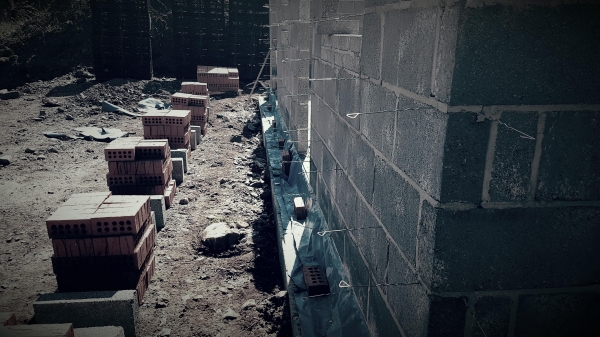The Death of Bricks and Mortar
"Bricks and Mortar" is the ubiquitous phrase often used to describe property, but how much longer will we use "bricks and mortar" or masonry construction? Many other forms of construction have been around for years, such as steel frame, timber frame and ICF, but until recent years weren't as popular. In my experience, people just like bricks; they feel safe with it and feel they understand it. However, legislation, especially in Wales, is driving us away from blockwork building.

Fundamentally, as much as people like bricks, they like their money even more.
As insulation standards keep being driven up, the walls have gotten thicker and thicker leading us to an inevitable crunch point where blockwork becomes uneconomical. As you thicken the walls, you need stronger wall ties, and wider foundations, so more digging and more concrete. The other construction methods, however, have the insulation incorporated into the structure and therefore don't suffer in the same way.
Developers I work with are predominantly shifting towards timber frame for the economies, and the adventurous self-builders are switching to ICF (Insulated Concrete Forms). ICF, for the lay person, looks like giant lego blocks which are stacked on each other with very little skill required and then filled with concrete. The only great hurdle to ICF so far seems to be the number of mortgage suppliers willing to take them on. The great benefits are the air-tightness formed by the concrete fill, the superior insulation levels and the speed of construction.
The biggest hurdle of all is mindset, on which there's very little movement. I suspect that despite the benefits of other construction types, "bricks and mortar" are here for the long haul.

